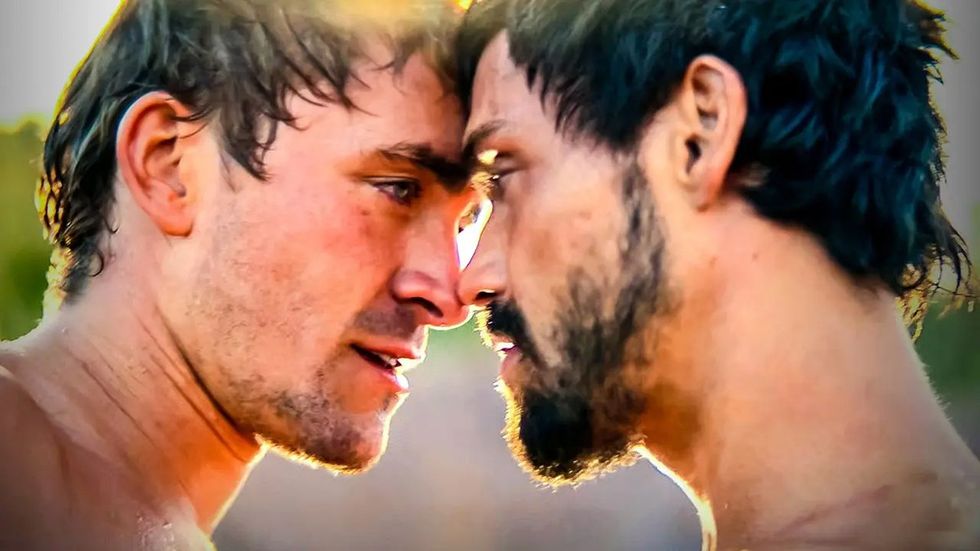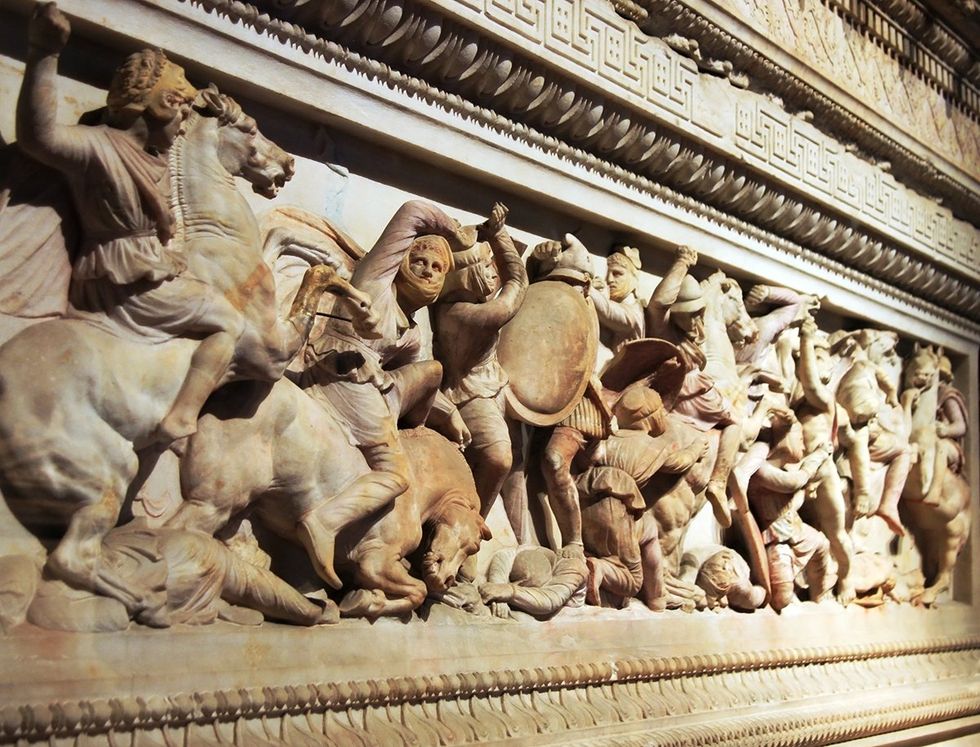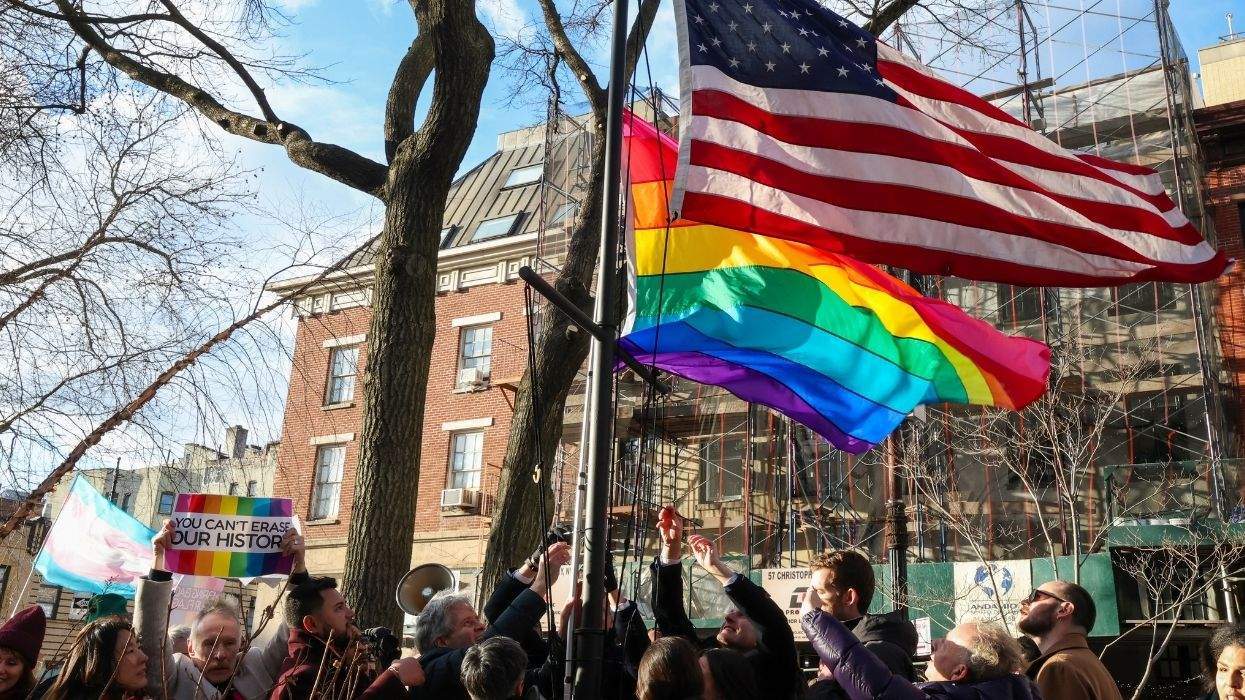Greek politicians are up in arms over a new Netflix series that depicts Alexander the Great's relationship with a man, referring to the long-verified information as "historical inaccuracies."
That's even after the country approved marriage equality recently.
After conservatives pitched a fit online over Alexander sharing a kiss with one of his generals, Hephaestion, in the first episode of Alexander: The Making of a God, right-wing members of the Greek parliament decided to weigh in. Dimitris Natsiou, leader of the far-right Christian Orthodox party Niki, said while addressing the chamber that the show is "deplorable, unacceptable, and unhistorical."

Natsiou said the show tries to “subliminally convey the notion that homosexuality was acceptable in ancient times, an element that has no basis," before asking the Greek minister for culture, Lina Mendoni, for her thoughts on the portrayal, and whether or not she attends to take action against Netflix, according to The Guardian.
Mendoni answered that the series is “replete with historical inaccuracies, demonstrates the director’s sloppiness and poverty of scenario," and that there is “no mention in the sources that it goes beyond the limits of friendship, as defined by Aristotle."
Related: Yes, there's evidence that Alexander the Great was gay or bi
While Alexander was married three times and fathered at least one child, there is a plethora of evidence that suggests his love for Hephaestion. Aristotle himself described the two of them as “one soul abiding in two bodies,” which is not widely interpreted platonically.
While most written accounts of the relationship came centuries after Alexander’s death, and the exact nature of their relationship is debated, the two childhood friends were often compared to Greek mythological hero, Achilles, and his male lover, Patroclus, by both their contemporaries and each other.
Same-sex relationships were also incredibly common in ancient Greece. Many involved an age and power differential, such as between students and mentors, though Alexander and Hephaestion differed in that they were close in age, according to scholar Athena Richardson via George Washington University.
Related: Dear conservatives: Yes, ancient Greece was gay as hell
Still, Mendoni recognized in her response that "the concept of love in antiquity is broad and multidimensional."

"We cannot interpret either practices or persons who acted 2,300 years ago by our own measures, our own norms and assumptions," she continued. "Alexander the Great, for 2,300 years, has never needed, nor does he need now, the intervention of any unsolicited protector of his historical memory or, even more, of his personality and moral standing.”
Mendoni also said that the ministry of culture would not pursue action against Netflix, as it "does not exercise censorship, does not carry out actions that result in prosecution or ban, does not manipulate, does not limit, does not control the dissemination of information and ideas neither preventively nor repressively."
“The inspiration of artists, personal interpretation, and the judgment of individuals cannot, evidently, be subjected to a regulatory regime and control, nor can it be governed by the courts or dragged into them," she added. "Instead, it is assessed and judged by each of us, by the international community. This is how Netflix is also evaluated.”
















Charlie Kirk DID say stoning gay people was the 'perfect law' — and these other heinous quotes
These are some of his worst comments about LGBTQ+ people made by Charlie Kirk.